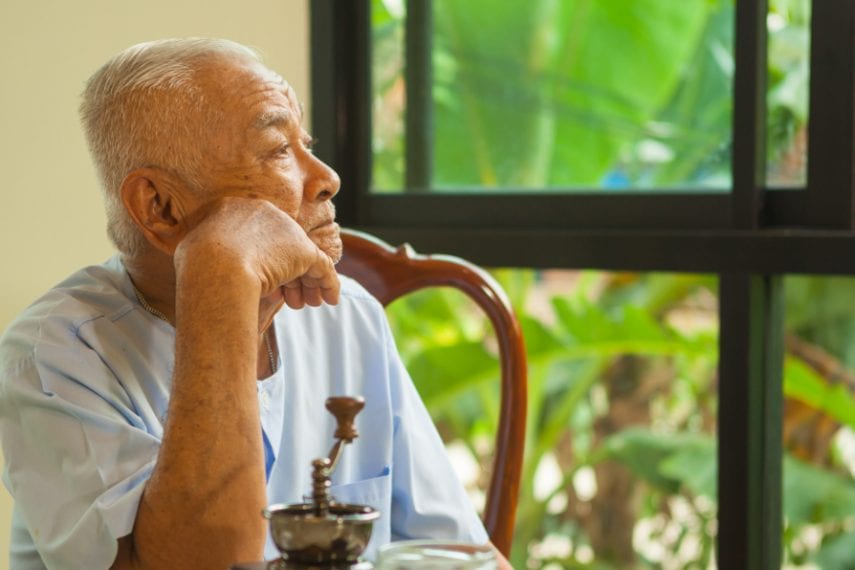Ambien Withdrawal Treatment for Lasting Recovery: Why Medically-Supervised Detox is Key

Knowing what to expect from Ambien withdrawal treatment makes detox and recovery seem possible. Medically-supervised detox is a safe and effective first step, followed by psychotherapy, holistic therapies, and lifestyle modifications to round out a comprehensive and long-lasting recovery journey.
Living with addiction will never look the same for everyone. A great many people deny their struggles and the life-changing treatment possible because they can’t identify with what they expect from an addict. But a substance use disorder is one that weighs down the life someone wants—any life. And there are very serious health risks that come with the misuse of controlled substances.
The transition into prescription drug addiction can be a deceptively smooth and inconspicuous process. When someone is prescribed Ambien for insomnia, the clinical intention is for the drug to stimulate restfulness in the short term while a client and their care practitioners develop longer-term strategies for dealing with the root issues and returning them to a healthy and empowered state. But it becomes easy to impose subjective standards on that short-term plan for the drug. It becomes easy to justify using it for a bit longer during a particularly stressful time or taking a larger dose in the interest of a good night’s sleep. But higher doses and prolonged use increase the risk of dependency. Awareness of the problem is the first step toward the life one really wants, and professional Ambien withdrawal treatment is the grounded and reliable approach to reclaiming life.
What Can You Expect from Ambien Withdrawal Treatment?
Perhaps someone is continuing to take the drug for sleep, for the euphoric effect, to stave off withdrawal symptoms, or a combination of these reasons. Detox and withdrawal from Ambien is the critical next step, but it can be incredibly dangerous if not monitored closely by medical professionals. Between the cravings and other distressing withdrawal symptoms of Ambien addition, people’s attempts to detoxify on their own will be less successful, much less comfortable overall, and certainly more dangerous than in a medically-supervised detox program.
Clinicians can manage a schedule for the client to taper off of the drug, rather than stopping abruptly. This can minimize or even prevent withdrawal symptoms. The process of Ambien detox and early recovery can take anywhere from a couple of weeks to months, depending on how heavily a client used the drug and for how long, whether they were also misusing other substances, and whether they experience co-occurring disorders. And symptoms tend to be the most distressing in the early days of detox. It isn’t possible to anticipate all complications prior to detox and withdrawal, and compassionate medical and psychological care is the key to the safest, most graceful, and most successful recovery.
Here are some of the withdrawal symptoms possible with Ambien detox:
- Cravings, both physical and psychological
- Abrupt mood swings
- Anxiety
- Panic Attacks
- Irritability
- Sweating
- Shaking
- Nausea and vomiting
- Stomach upset
- Insomnia
- Increased heart rate
- Seizures
Some of these symptoms can pose significant physical and psychological dangers if detox is attempted without medical support. Symptoms may be even more complicated and serious if a person is also withdrawing from other substances, such as alcohol. So, it’s critical that the scope of care during Ambien withdrawal treatment is comprehensive and responsive.
We're Here to Help. Call Today!
866-922-1350What Else Does the Recovery Journey Entail at an Ambien Treatment Center?
Medical Ambien detox is about lessening, easing, and preventing withdrawal symptoms. The level of personal care and reliable strategies possible in a clinical rehab setting can lead to enormous improvements in a client’s experience of detox and withdrawal as well as in their overall recovery. But the same in-patient residential treatment is also about developing coping strategies for the original challenges of insomnia and addiction itself—in the ultimate interest of long-term recovery from substance dependency.
In addition to controlled detox from Ambien and other substances, and medications to manage other symptoms and co-occurring disorders, a residential treatment center allows for simultaneous therapy for holistic healing of the whole person. There may be a mental health disorder contributing to a client’s difficulty sleeping or relaxing that is as of yet unknown, and a medically-supervised treatment center is an ideal setting for an accurate diagnosis and synchronized next steps. Likewise, for mental health challenges that are already known to a client, this comprehensive treatment environment opens the door for synchronizing health, psychological, and lifestyle strategies.
Many recovery strategies will focus on managing stress and anxiety and enabling relaxation and quality sleep.
Psychotherapy Treatment
Therapists in a residential treatment center can assess the best care path for the individual and whether treatment is needed for better sleeping habits; coping with anxiety, attention deficit hyperactivity disorder (ADHD), or another co-occurring disorder; managing a high-caffeine diet; reconciling past trauma; and any other factors that contributed to disordered Ambien use. In this dedicated setting, therapists can address co-occurring issues at once in order to prepare the client best for re-integrating their life and healthy habits following their treatment stay.
Holistic Therapies
Holistic and experiential therapy can, at the same time, equip clients with tools for coping with challenges and help them to envision the life they truly want to create for themselves. These activities may include yoga, massage, meditation, acupuncture, art therapy, music therapy, equine therapy, personal training, and physical therapy. In combination with psychotherapy, clients can reduce stress and anxiety and develop greater self-awareness as they adjust to an empowered life without substances as a crutch.
Lifestyle Revitalization
Successful lifelong recovery calls for healthy everyday habits and effective methods for dealing with stress, anxiety, and sleep difficulties. An individual needs to feel empowered to employ their own methods on a daily basis that are alternatives to sedative substances. Participating in holistic residential treatment is a good way to see how everything from diet and exercise to time management and organization to meditation can support healthy relaxation and regular sleep.
No one need feel alone, isolated, stigmatized, or rejected in their struggles with addiction. A revitalized life is right around the corner. And a center for Ambien withdrawal treatment can help people to embrace the challenges hand-in-hand with the solutions and their own inherent strengths in recovery.
Alta Mira offers comprehensive treatment for people struggling with drug and alcohol addiction as well as co-occurring mental health disorders and process addictions. Contact us to learn more about our renowned Bay Area program and how we can help you or your loved one start on the path to lasting wellness.






